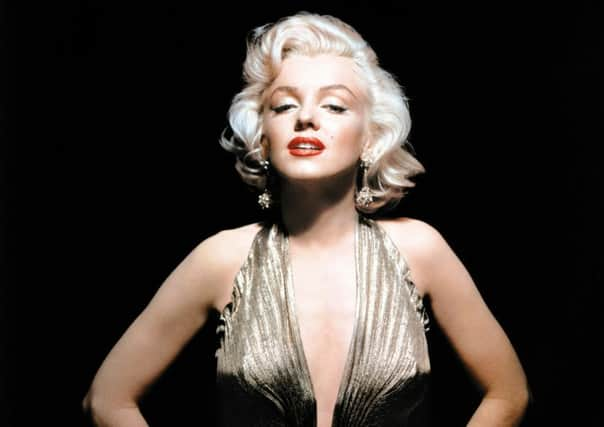Research roots out the truth behind the dumb blonde myth


Perhaps not surprisingly, the study revealed there was little perceptible difference in the IQ of blondes, redheads, brunettes or women with black hair.
In fact blondes had a slightly higher IQ of 103.2, compared to 102.7 for those with brown hair, 101.2 for those with red hair and 100.5 for those with black hair.
Advertisement
Hide AdAdvertisement
Hide AdThey were slightly more likely to be in the highest category, and slightly less likely to be in the lowest.
Jay Zagorsky, professor of economics at Ohio State University, said although it may seem harmless, it has done women no good.
He explained: “Research shows stereotypes often have an impact on hiring, promotions and other social experiences.
“This study provides compelling evidence there should not be any discrimination against blondes based on their intelligence.”
Advertisement
Hide AdAdvertisement
Hide AdBlondes have long been the butt of jokes for their supposed lack of intelligence but the study of 10,878 American baby boomers found this is simply wrong.
Prof Zagorsky said their average IQ was actually slightly higher than those with other hair colours, but that finding was not “statistically significant.”
He said: “I don’t think you can say with certainty blondes are smarter than others, but you can definitely say they are not any dumber.”
The overall message was white women whose natural colour was blonde had an average IQ within three points of brunettes and those with red or black hair.
Advertisement
Hide AdAdvertisement
Hide AdThe results for men were similar - blonds also had IQs roughly equal to their counterparts with locks of other hues.
The study, published in the journal Economics Bulletin, used data from the National Longitudinal Survey of Youth 1979 (NLSY79), whose participants were between 14 and 21 when they were first interviewed.
In 1980, they took the Armed Forces Qualification relied upon by the Pentagon to determine the intelligence of recruits with scores based on maths and English skills. Five years later all participants were asked for their natural hair colour.
To eliminate any bias in the IQ tests caused by ethnic and racial differences, Prof Zagorsky dropped all African Americans and Hispanics from the analysis.
Advertisement
Hide AdAdvertisement
Hide AdThe study cannot say whether there are any genetic relationships between hair colour and intelligence, but Prof Zagorsky did find one fact that could at least partially explain why blondes showed slightly higher intelligence - they grew up in homes with more reading material than the others.
He said: “If blondes have any slight advantage, it may simply be that they were more likely to grow up in homes with more intellectual stimulation.”
Prof Zagorsky also noted more women than expected reported they were blonde - 20.7 per cent compared to just 17.1 per cent of men.
Assuming hair colour is not related to gender and men were less likely to use dye, he said the results suggest about 3.5 per cent of women reported they were blonde when they were not.
Advertisement
Hide AdAdvertisement
Hide AdProf Zagorsky said he could not say for sure how that may have affected the results, but the major finding was almost certainly still true - blondes could hold their own intellectually with those of any other hair colour.
It backs up research two years ago that revealed hair colour is ‘only skin deep’ because it depends on just a single letter of the genetic code and is completely unrelated to any other trait, including the shallow claim it signifies lower intelligence.
Scientists at Stanford University, California, found switching just a single ‘letter’ of DNA would turn brunettes to blondes, and would have no affect on the brain.
It is believed the originator of the ‘dumb blonde’ was an 18th century French prostitute named Rosalie Duthé whose reputation of being beautiful but stupid inspired a play about her called Les Curiosites de la Foire.
Advertisement
Hide AdAdvertisement
Hide AdA possible explanation is attractive women have less pressing incentives to cultivate and demonstrate their intellect in order to ensure their future, since attractiveness is an asset.
The notion of “dumb blonde” has spawned counter narratives such as the 2001 film Legally Blonde in which Reese Witherspoon succeeds at Harvard despite biases against her beauty and blonde hair.
Whether they have more fun is still open to question.